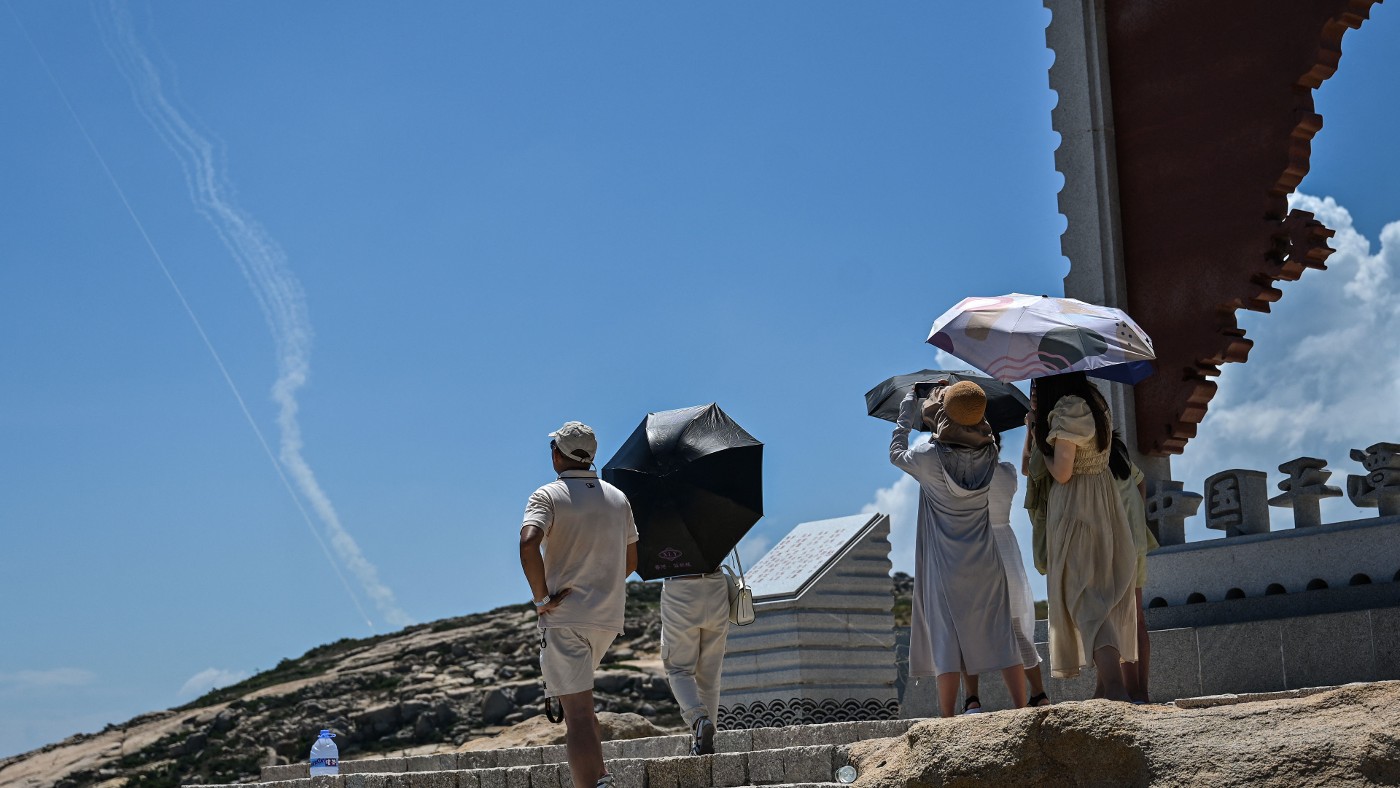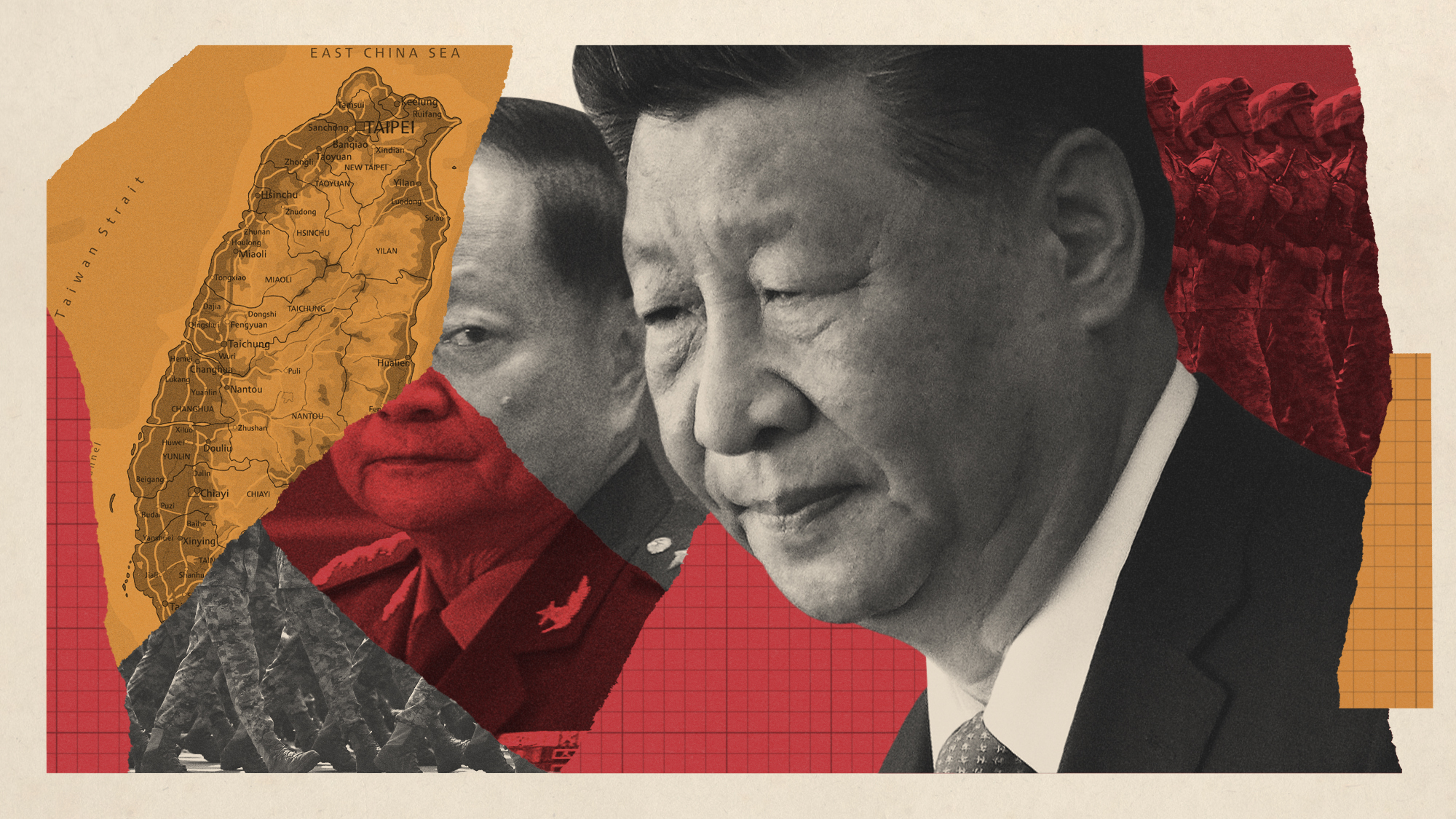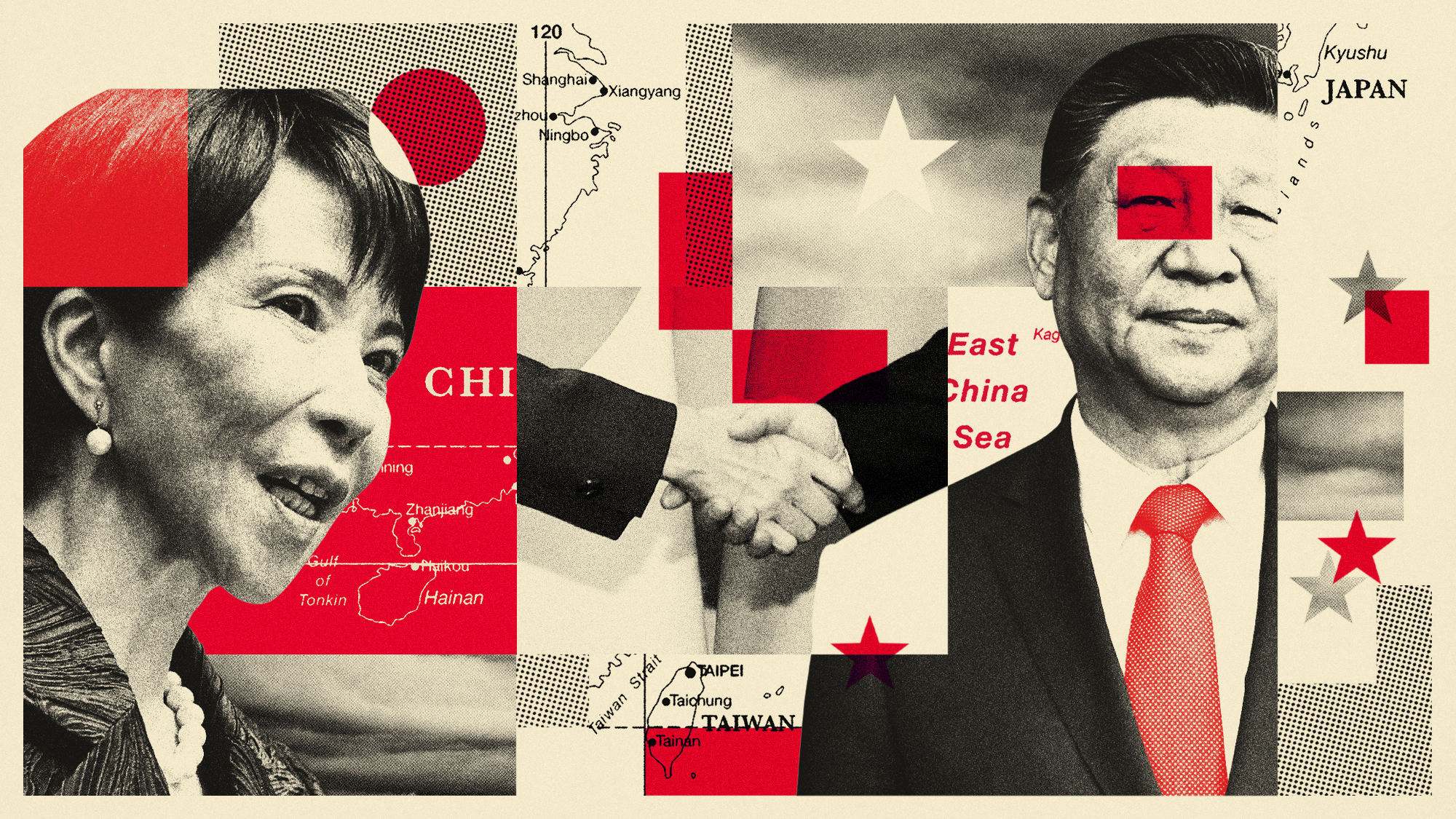Where Britain stands on the China-Taiwan tensions
The UK does not recognise the island, but rhetoric has heated in recent months

A free daily email with the biggest news stories of the day – and the best features from TheWeek.com
You are now subscribed
Your newsletter sign-up was successful
China has launched missiles into the sea as part of its biggest-ever military exercise around Taiwan following US politician Nancy Pelosi’s controversial visit to the island.
China “appears to be rehearsing for an attack on the island”, which it regards as a breakaway province, said the Daily Mail. Taiwan’s ministry of defence has said that “we don’t stand down when it comes to security and sovereignty”.
The escalating tensions have led to questions over which nations would defend Taiwan, which is home to 23m people, if the island came under attack, and what the UK’s response would be.
The Week
Escape your echo chamber. Get the facts behind the news, plus analysis from multiple perspectives.

Sign up for The Week's Free Newsletters
From our morning news briefing to a weekly Good News Newsletter, get the best of The Week delivered directly to your inbox.
From our morning news briefing to a weekly Good News Newsletter, get the best of The Week delivered directly to your inbox.
Does the UK recognise Taiwan?
No, it “does not recognise Taiwan”, nor “maintain formal diplomatic relations with the island”, as explained in a 2022 parliamentary debate pack. When the UK and China exchanged ambassadors in 1972, the UK closed down its consulate in Taiwan the same year. It maintains a simple outpost called the British Office Taipei.
Although the UK says it has no plans to recognise Taiwan as a state, it does support Taiwan’s participation in international organisations as an observer. In 2020, Lord Ahmad of Wimbledon said on behalf of the government that the UK has a “strong unofficial relationship” with Taiwan “based on dynamic commercial, educational and cultural ties”.
Does the UK have defence ties with Taiwan?
There are “no formal defence ties with Taiwan”, but PM hopeful and foreign secretary, Liz Truss, has made some “bullish” statements about defending the island, noted veteran foreign policy and defence writers Mark Curtis and Richard Norton-Taylor at Declassified UK.
In his first public speech, made last year, MI6 chief Richard Moore said “Beijing’s growing military strength” and “desire to resolve the Taiwan issue, by force if necessary... pose a serious challenge to global stability and peace”, noted Taiwan News.
A free daily email with the biggest news stories of the day – and the best features from TheWeek.com
The same month, the government said it was “concerned by any activity which raises tension” but stopped short of suggesting it would assist militarily, saying it considers the Taiwan issue “one to be settled peacefully by the people on both sides of the Taiwan Strait through constructive dialogue”.
But in April this year, Truss said “we must ensure that democracies like Taiwan are able to defend themselves” and, in May, Attorney General Suella Braverman said the UK must be willing to respond to “hostile cyber activity” by China against Taiwan.
There is an economic dimension to relations as Taiwan is a “burgeoning market for UK arms exports”, said Curtis and Norton-Taylor at Declassified, noting that since 2017, Britain has sold £338m worth of military equipment to the island.
Some suspect the Aukus defence pact between the UK, US and Australia could lead to Britain being embroiled in a war with China over Taiwan. Australia has already vowed to help US defend Taiwan from Chinese attacks, noted the FT, begging the question of how the UK would respond in such a scenario.
Last September, former prime minister Theresa May asked Boris Johnson: “What are the implications of this pact for the stance that would be taken by the United Kingdom in its response should China attempt to invade Taiwan?”
Johnson was “careful not to rule anything out”, said The Guardian. The PM replied that the UK “remains determined to defend international law and that is the strong advice we would give to our friends across the world, and the strong advice that we would give to the government in Beijing”.
Should the UK change its position on Taiwan?
Writing in The Telegraph, Benedict Rogers said the UK should draw strength from Pelosi and visit Taiwan at “the earliest opportunity”. But Rogers, the author of a The China Nexus: Thirty Years In and Around the Chinese Communist Party’s Tyranny, said London “should not recognise Taiwan’s independence diplomatically” - yet.
He added, “we should do everything possible to escalate ties with Taiwan short of full recognition”, meaning “British cabinet ministers should go, to explore and strengthen ties in trade, technology, education, health, tourism, arts and culture” and “send a clear signal that Taiwan is our friend and we will stand by them”.
Others, such as Francis Pike at The Spectator, think statements and visits like Pelosi’s are “not worthy of risking war with China – a war, even if kept within the boundaries of conventional weapons, that would likely collapse the global economy”.
China’s UK ambassador has threatened “severe consequences” should British MPs set foot in Taiwan, reported The Guardian. In a statement yesterday, the UK and the other six members of the G7 struck a conciliatory tone, saying “we encourage all parties to remain calm, exercise restraint, act with transparency, and maintain open lines of communication to prevent misunderstanding”.
Chas Newkey-Burden has been part of The Week Digital team for more than a decade and a journalist for 25 years, starting out on the irreverent football weekly 90 Minutes, before moving to lifestyle magazines Loaded and Attitude. He was a columnist for The Big Issue and landed a world exclusive with David Beckham that became the weekly magazine’s bestselling issue. He now writes regularly for The Guardian, The Telegraph, The Independent, Metro, FourFourTwo and the i new site. He is also the author of a number of non-fiction books.
-
 Political cartoons for February 15
Political cartoons for February 15Cartoons Sunday's political cartoons include political ventriloquism, Europe in the middle, and more
-
 The broken water companies failing England and Wales
The broken water companies failing England and WalesExplainer With rising bills, deteriorating river health and a lack of investment, regulators face an uphill battle to stabilise the industry
-
 A thrilling foodie city in northern Japan
A thrilling foodie city in northern JapanThe Week Recommends The food scene here is ‘unspoilt’ and ‘fun’
-
 How corrupt is the UK?
How corrupt is the UK?The Explainer Decline in standards ‘risks becoming a defining feature of our political culture’ as Britain falls to lowest ever score on global index
-
 What do Xi’s military purges mean for Taiwan?
What do Xi’s military purges mean for Taiwan?Today’s Big Question Analysts say China’s leader is still focused on reunification
-
 The high street: Britain’s next political battleground?
The high street: Britain’s next political battleground?In the Spotlight Mass closure of shops and influx of organised crime are fuelling voter anger, and offer an opening for Reform UK
-
 Is a Reform-Tory pact becoming more likely?
Is a Reform-Tory pact becoming more likely?Today’s Big Question Nigel Farage’s party is ahead in the polls but still falls well short of a Commons majority, while Conservatives are still losing MPs to Reform
-
 Why are China and Japan fighting over Taiwan?
Why are China and Japan fighting over Taiwan?Today's Big Question Comments on Taiwan draw Beijing's rebuke
-
 Taking the low road: why the SNP is still standing strong
Taking the low road: why the SNP is still standing strongTalking Point Party is on track for a fifth consecutive victory in May’s Holyrood election, despite controversies and plummeting support
-
 What difference will the 'historic' UK-Germany treaty make?
What difference will the 'historic' UK-Germany treaty make?Today's Big Question Europe's two biggest economies sign first treaty since WWII, underscoring 'triangle alliance' with France amid growing Russian threat and US distance
-
 Is the G7 still relevant?
Is the G7 still relevant?Talking Point Donald Trump's early departure cast a shadow over this week's meeting of the world's major democracies